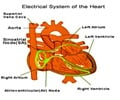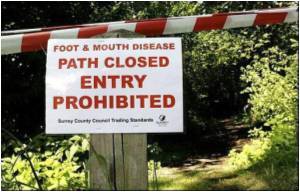Bear bile compound could help treat abnormal heart rhythm, both in people who have had heart attack and in foetuses, finds study.

Laboratory tests suggested that UDCA acts on non-beating pathological heart cells called myofibroblasts, which interfere with how electrical signals travel across the heart.
The study demonstrates for the first time that UDCA can prevent arrhythmia by altering the electrical properties of myofibroblasts. These cells are found in the fetal heart but disappear shortly after birth.
However, they reappear in patients that have had a heart attack, when they are involved in laying down scar tissue. The study found that these cells disrupt the transmission of electrical signals that control the heart's rhythm.
"These findings are exciting because the treatments we have now are largely ineffective at preventing arrhythmia in patients who develop an abnormal heart rhythm after a heart attack," said Dr Julia Gorelik, the study's senior author.
"Our results from the lab suggest that UDCA could help the heart muscle conduct electrical signals more normally. We're hoping to set up a clinical trial to test whether these results translate to patients with heart failure," she added.
Advertisement
Source-ANI














